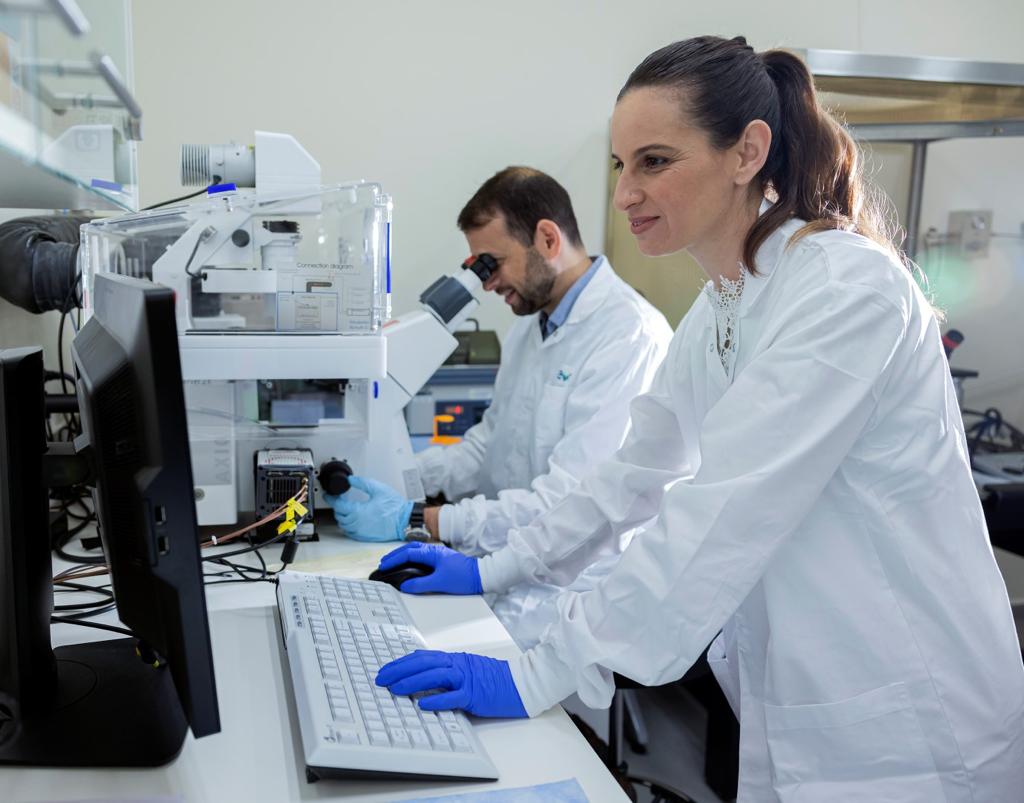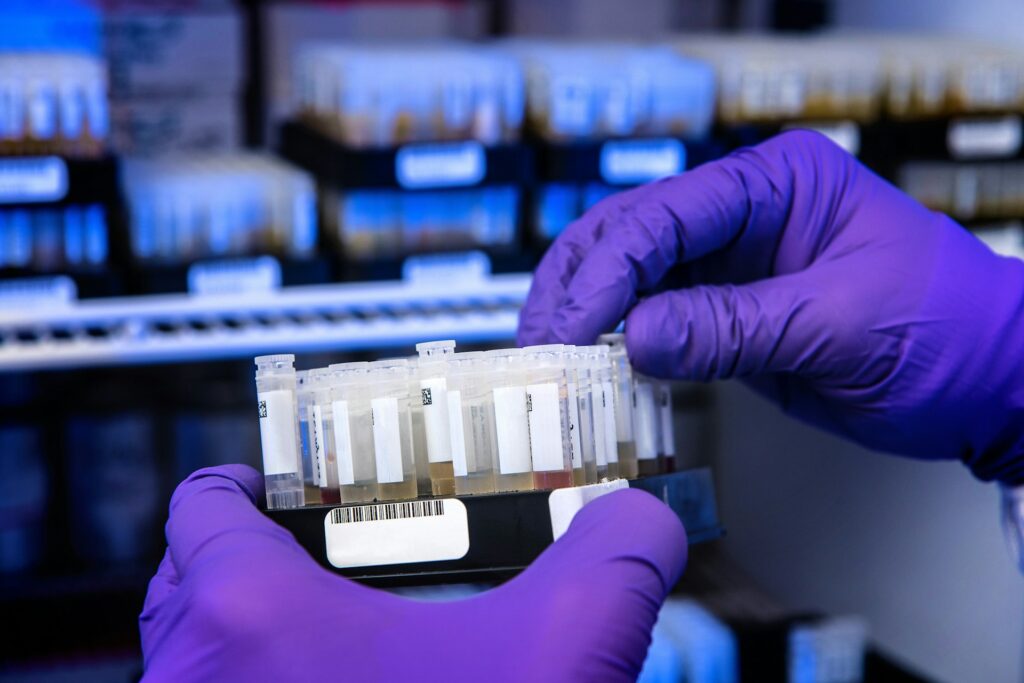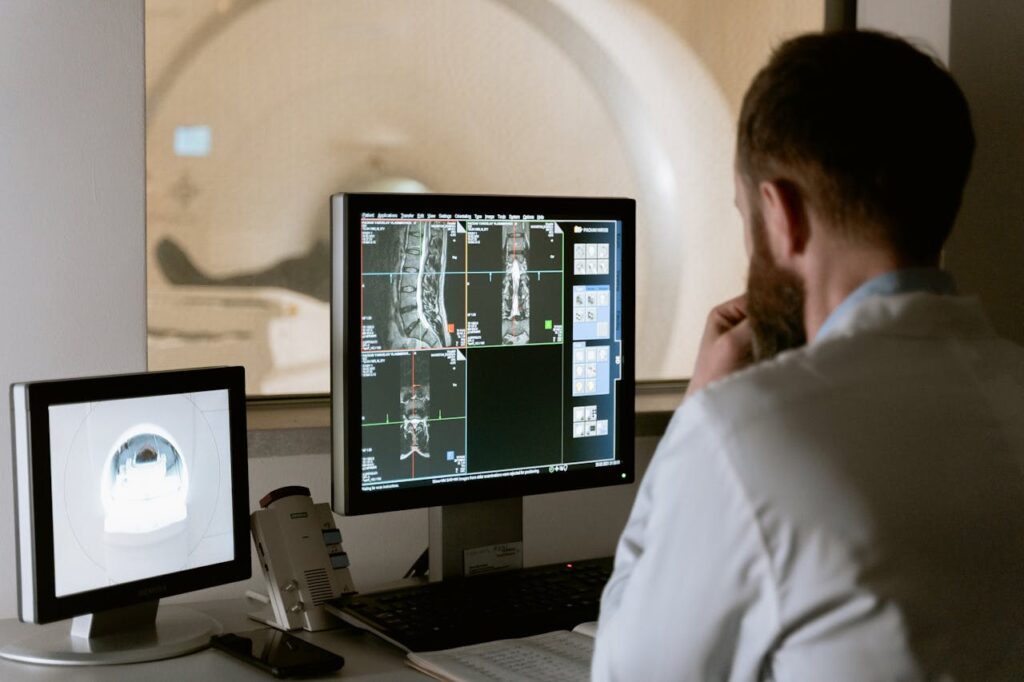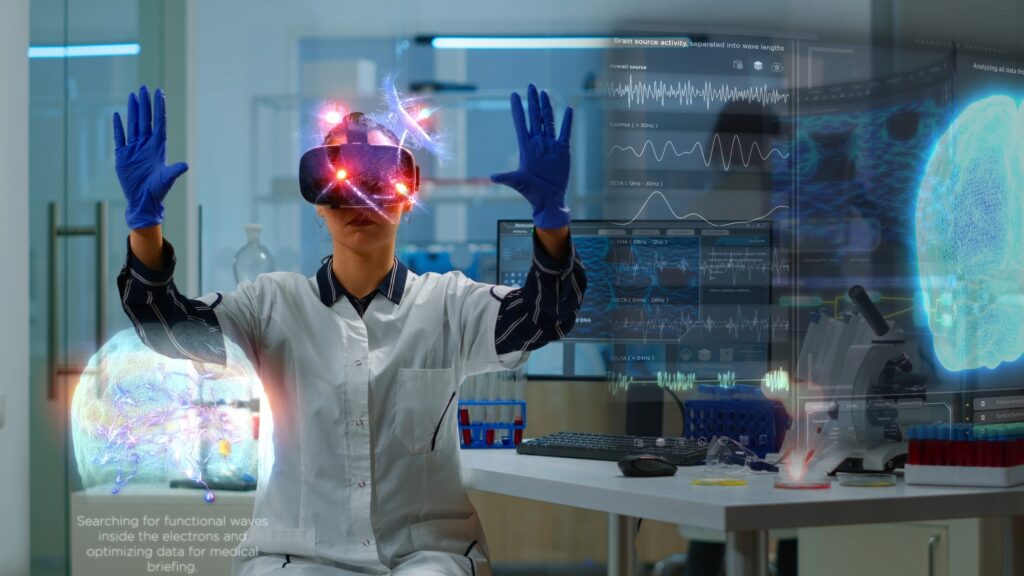An Israeli medtech venture studio is working with international innovators in the field and global pharmaceutical giants to work on technologically advanced solutions to some of the most challenging diseases facing humanity.
Founded in 2021 as an initiative of the Israel Innovation Authority, Rehovot-based Aion Labs has taken a ground-up approach to healthcare R&D – first determining the most pressing issues and then building a startup around the solution to each one.
“We’re working in a model that we’re creating startups [and] each one will address a different point in the value chain and how we understand disease mechanisms, discover new drugs and then develop them,” Aion CEO Mati Gill tells NoCamels.
“We start with the problem and actually create the company ourselves.”
Gill explains that the development of a new drug usually takes more than a decade to complete, at an average cost of $2 billion. And even then, he says, more than 90 percent of the drugs in development fail when they enter human clinical trials.
But according to Gill, by harnessing new technologies, the resources of the pharmaceutical giants and the ingenuity of the international scientific community, Aion can make the entire process far more efficient and efficacious.
“[There is] a huge opportunity here to discover new drugs, to be able to treat diseases that are currently unchartable – and then be able to make that whole process much faster, cheaper, more affordable and more highly predictable, in a manner that will make the whole element much more technologically advanced by using data, by using artificial intelligence,” Gill says.
Aion Labs is happily located next to Israel’s internationally renowned Weizmann Institute of Science, and, since its foundation less than three years ago, has overseen the creation of a handful of startups. Each one, says Gill, addresses “a big challenge in the value chain.”
The center is working with R&D teams from many of the major global pharmaceutical companies as well as the startups, some operating for the first time in Israel.

Gill explains that while homegrown Teva and Germany’s Merck have long had an Israeli presence, US-based Pfizer and British-Swedish AstraZeneca are opening R&D centers in the country for the first time, at Aion. He says this is because the technological innovation for which Israel has garnered worldwide acclaim is taking a more prominent role in life sciences research.
“The tech portion of the biotech equation is becoming much more important,” he says.
“AI, machine learning and computational technologies are becoming much more important to the future of the pharma industry. That’s where Israel actually has the chance to be a great ecosystem and competitive one at a global scale.”
The pharma companies and Aion Labs – along with Amazon Web Services managing the technical side and the Israel Biotech Fund offering investment support – work together to identify what Gill calls “big research challenges” that have the potential to be solved using AI and other computational technologies.
He explains that Aion Labs first identifies an issue to be resolved and then searches for “great scientists” who will be able to come up with a solution.
The person or team selected is then set up as a startup, with either seed or pre-seed funding (Aion has programs for both) and any necessary assistance.
Sign up for our free weekly newsletter
Subscribe“We establish them with an early stage investment and help them to grow and validate their technologies,” Gill says.
He gives the example of Combinable.ai, a biotech startup working on optimization of antibodies (proteins created in the body to fight infections) to develop new medicines.

Before the startup was formed or even conceived of, Aion consulted with R&D experts from the pharma companies, inviting them to pose a major issue whose resolution would have a massive impact on the industry.
The companies came back with the challenge of building a platform based on AI and machine-learning technologies that could optimize antibodies to create efficient and safe drugs.
Furthermore, they said, the new drugs should be able to successfully undergo clinical testing and secure approval from the US Food and Drug Administration to be used to treat patients.
According to Gill, successfully building such a platform based on machine-learning would reduce a process that had taken years to weeks or even days.
“We started out just with that problem statement, not with the solution,” Gill recalls. “We said ‘okay, here’s the big problem that our pharma companies are willing to invest a million dollars in’.”
The call to arms elicited applications from “very talented folks” around the world, he says. Aion narrowed the field down to 15 applicants who were all invited to a week-long workshop in Israel before the final team – including German, Israeli and Russian researchers – was ultimately selected.
“Part of our philosophy is that if you’re going to be a global ecosystem, you have to compete with global talents,” he says.

And while Israel is very proud of the amount of Silicon Valley unicorns (startups valued at over a billion dollars) that were built by its native daughters and sons, Gill explains that preserving Israel’s status as the Startup Nation means bringing that global talent to build companies in the country.
As such, a worldwide call has already been issued for solutions to the next challenge – using an AI/machine learning computational platform in work with RNA (molecules that are vital to most functions carried out by the body).
And in June, the finalists in that challenge will arrive in Israel to present their solutions to the experts at Aion Labs.
“From publishing it online and doing our initial scouting for scientists, founders, both in Israel and abroad, we are seeing some interest,” Gill says.
“I’m very confident that we’ll have a good team ultimately chosen out of this whole process to lead the new startup.”
Related posts

Editors’ & Readers’ Choice: 10 Favorite NoCamels Articles

Forward Facing: What Does The Future Hold For Israeli High-Tech?

Impact Innovation: Israeli Startups That Could Shape Our Future




Facebook comments